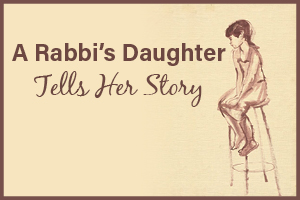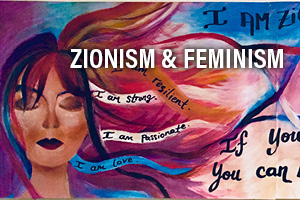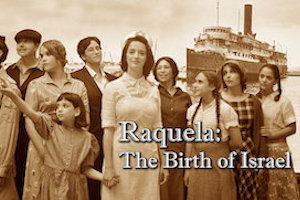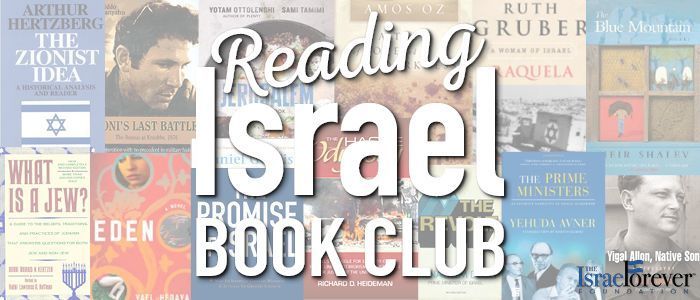A RABBI’S DAUGHTER
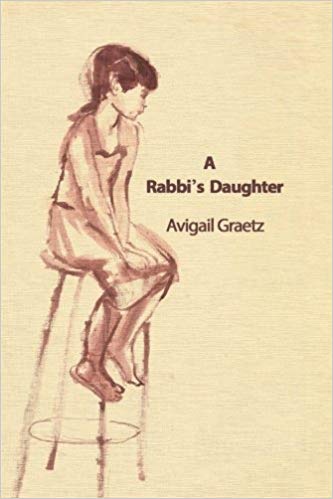
A Rabbi’s Daughter is a semi-autobiographical novel about three generations of strong women, even though the title points to the importance of the patriarch, the Rabbi. Avigail Graetz draws inspiration from her own upbringing, as a rabbi’s daughter in Israel, to tell the story of Elisheva and the relationships with the women in her life.
This family novel, written in first person, travels through time from 1999 when Elisheva’s grandmother is on her deathbed to 1993 when Elisheva is still an adolescent. Her mother was away when she and her father, a Conservative rabbi, found themselves hosting a strange American woman that entered their home. This visit changed their lives and only now, as the grandmother is departing the world, Elisheva has the courage to face her story and the legacy of motherhood she received.
The author was awarded both the PARDES Fellowship at the National Library of Israel and the Jewish National Fund-Hebrew Literature Prize (2012) for this book, her debut novel.

READ MORE
DISCUSSION QUESTIONS
- The novel’s title is A Rabbi's Daughter and not THE Rabbi’s Daughter. What difference does it make?
- Does Elisheva ever forget that she is the daughter of a rabbi? How does it affect her? What, if any, are the benefits to this role?
- The book is a coming-of-age novel. Does it resonate with your own growing up in some way? Is this how you pictured growing up in Israel? What are the main similarities and differences that come to mind?
- What do you learn about life in Israel? Why is the Israeli scout movement (tzofim) so important in Israeli society? Are there any major differences between the Israeli Tzofim and the international Scouting movement, beyond the fact that in Israel the troops are co-ed?
- How is the Conservative (masorti) synagogue depicted in this novel? Why does Elisheva rebel against it? Is it because of her father the rabbi or something else? How does Elisheva express her anger? Can you relate to her expression?
- Elisheva is a PK (preacher’s kid). In what way is she typical and in other ways different? Do you think a RK (rabbi’s kid) has more freedom in Israel than in America? If so, why? How does her situation compare to the children of other prominent people? Do you have expectations from the rabbi's children, either of your synagogue (if you have one), or in general? What effect do you think these expectations have on the children and their parents?
- This book depicts the consequence of the “open house” hospitality that the rabbi’s family is expected to maintain. Are there any limitations? What would you do if an overnight guest settled in for a long term?
- The grandmother is very important in this book. How would you characterize her relationship with Elisheva? The mysterious strange woman? Her son-in-law (the rabbi)? Her own daughter (Ruth)? Is she a typical grandmother? What is her wisdom? Is her death a tragedy? What function does she play in the plot?
- Guy Ehrlich reviewed the Hebrew version of the book in Ha’aretz (June 11, 2013) and entitled his review: "When the Rabbi's Daughter Needs a Mother" He wrote, “Avigail Graetz takes another look at the loaded topic of the rabbi's daughter in literature, but in her sensitive and lively book she davka finds her way back to her mother.” The missing mother haunts the book. What do you think of Ruth’s absence? Does her mother’s childhood illness help explain why she was not there for Elisheva?
- Do you think Elisheva makes the right choice in the end? Would you have done something differently?
- This novel is also a story within the story- Elisheva is looking for material for a movie. Do you think this novel can be turned into a movie? Has Elisheva found her topic by the end?
The Reading Israel Book Club: Bring us to your community and be inspired!
Throughout the year, the Reading Israel Book Club of Israel Forever brings you a new literary delight to grow your Israel connection through the written word.
We hope that you enjoy our selections and participate in discussion not only with your friends and family but with an international community of readers in our open discussion group on Facebook.

